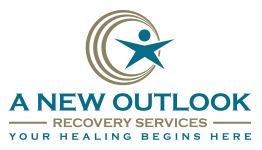
11|2019
From Hopelessness to Happiness—a Learnable Life Skill
If life could be graded, Anthony would give his an “F” with not much optimism for the future.
His new job is stressful, his teenage daughter is struggling with depression, he and his wife are fighting a lot lately, and he hates himself for the extra 50 pounds he’s carrying.
Anthony feels hopeless and his life seems depressing and dark. Every setback reinforces his feelings of pessimism and grim certainty that nothing will ever get better.
Barbara’s struggles seem just as daunting. Her husband just lost his job, two months after the birth of their first child. She is responsible for her elderly mother, who is becoming increasingly frail.
To make things worse, her best friend and main support is moving to another state and the landlord just raised the rent by $200. Despite all this, Barbara gives her life a strong B+ and knows there are some A+ days ahead.
Unlike Anthony, Barbara sees her setbacks as temporary obstacles to be overcome. To her, crises are part of life, opportunities for her to gain in wisdom and courage.
Optimists & Pessimists
Put simply, some people are optimists and others are pessimists. However, optimism isn’t an accident—it’s a skill that can be learned, one that can help us feel better, resist depression and greatly improve our lives.
Psychologist, clinical researcher and bestselling author Martin Seligman has spent 25 years studying optimism and pessimism.
In his book, Learned Optimism, he states that pessimistic thinking can undermine not just our behavior but our success in all areas of our lives.
“Pessimism is escapable,” he writes. “Pessimists can learn to be optimists.”
Flexible Optimism
By altering our view of our lives, we can actually alter our lives, he says. First, he says we must recognize our “explanatory style,” which is what we say to ourselves when we experience a setback.
By breaking the “I give up” pattern of thinking and changing our interior negative dialogue, we can encourage what he calls “flexible optimism.”
He believes that focusing on our innate character strengths (wisdom, courage, compassion), rather than our perceived failures boosts not just our moods, but our immune system.
Research has shown that optimistic people tend to be healthier and experience more success in life; therefore, he encourages parents to develop the patterns of optimism in their children.
Spiritual Optimism
Practicing “spiritual optimism” is another way to improve the quality of our lives, writes Joan Borysenko, psychologist, speaker and author of several books, including Fire in the Soul.
She encourages people who experience feelings of despair and hopelessness in times of crises to remember it takes courage to live, and that we can find that courage by facing our fears, finding support and using prayer or meditation.
Similar techniques outlined by Dr. David Burns in his book Feeling Good: The New Mood Therapy, have been effective in treating depression. He believes that changing our thinking has a profound effect on our moods, including cases of severe depression. It’s not our lives that depress us, he writes, but our thinking about our lives.
So, unless Anthony begins to change his thinking, his life’s outlook may remain bleak and dismal. Barbara, however, is likely to graduate to even more satisfying and fulfilling years ahead because she believes her life is filled with challenges and opportunities.
A New Outlook Recovery Services & Colorado TMS Services
A New Outlook Recovery Services and Colorado TMS Services uses NeuroStar transcranial magnetic stimulation (TMS) to target key areas of the brain. Because NeuroStar is a non-drug treatment, people don’t experience side effects. Side effects like those associated with antidepressant medications.
Precisely targeted NeuroStar Advanced Therapy makes long-term remission possible—which is why it’s the #1 choice of doctors.
We have a center located in Littleton/South Park, Colorado…Your Healing Begins Here.
South Park Office – Call today for an evaluation 720-671-0533
Author’s content used under license, © 2008 Claire Communications
Categories:: Personal Growth
